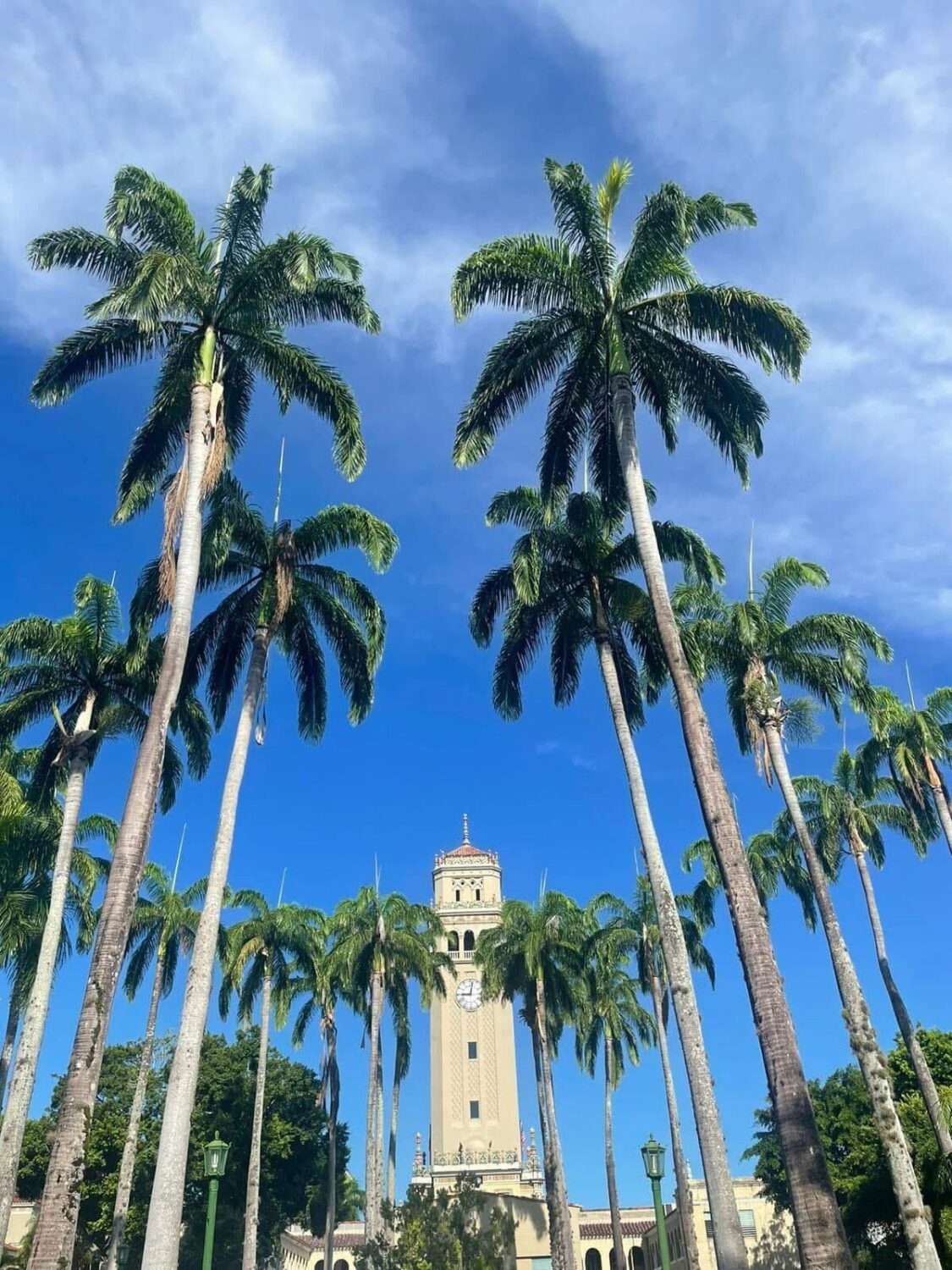Four HBCU student huddle together smiling and looking at something on a laptop.
NDC believes every deaf person should have access to education and training opportunities; this includes the rich culturally specific experiences at HBCUs. These institutions, with esteemed traditions and great pride, aim to ensure all students have the opportunity to develop their talents and skills. NDC is committed to supporting these institutions and their missions to also create opportunities for deaf students.
Deaf Legacies at HBCUs
By the 1940s, 18 segregated Black deaf schools or “colored departments” were in the South and boarding states, including Kansas and Missouri (McCaskill et al., 2011). These schools typically served Deaf and blind children and adults and were primarily residential. Most schools’ goals were to provide a separate but equal educational environment for Black Deaf children in hopes that they would be self-sustaining and society-contributing individuals (Bickley, 2001). Some Black Deaf schools worked towards these goals in relationship with Historically Black Colleges and Universities (HBCUs) throughout the South.
Several Black Deaf schools (e.g., Southern State School for the Deaf and the West Virginia Schools for the Colored Deaf) were built on the same property as HBCUs (e.g., Southern University A&M and West Virginia State College) and or recruited Black teachers and staff (e.g., Colored Department of the Arkansas School for the Deaf recruited from Philander Smith College). The development of formal Black Deaf education in the South gave Black Deaf children access to education, language, community, and trades. As a result of the Broad vs. Board of Education verdict of 1954, the legal segregation of Deaf schools ended. The last Black Deaf school, the Southern State School for the Deaf, was finally closed and interrogated with the Louisiana School for the Deaf in 1978 (McCaskill et al., 2011).
Since this time there has been limited documentation of the significance of HBCUs to Deaf education until the publishing of the book, The Hidden Treasure of Black ASL: Its History and Structure, in 2011. Past relationships between HBCUs and Black Deaf education give us hope that HBCUs can continue to be supportive and culturally enriching academic homes for Black Deaf students today. It is this history and hope that brings us to this study.
Fostering #DeafSuccess within HBCU Networks
NDC is embarking on a collaborative project that seeks to support institutional capacity, at HBCUs, to recruit, retain, and support deaf students. This work has a two-pronged approach, first connecting directly with HBCUs and second, reaching out to students currently attending HBCUs. To begin, NDC will work to establish relationships and networks with HBCUs that are interested in improving accessibility and accommodations for deaf students. Representatives from NDC will be present at the 2022 National HBCU Week Conference. In October and November, NDC will invite HBCUs professionals to a virtual listening and networking session to learn more about programs at the institutions, services available, and to identify areas in which NDC can offer support.
In partnership with NDC, Dr. Ramirez-Stapleton, Associate Professor at California State University Northridge, is recruiting for a research project to document deaf student experiences at HBCUs to increase awareness that HBCUs are an accessible option for postsecondary education. Dr. Ramirez-Stapleton started the study, “Deaf Students and HBCU Experiences” in 2020. The first interviews unintentionally focused on Black Deaf alumni from various HBCUs. With campuses moving to virtual platforms and multiple pandemics unfolding (e.g., COVID and the Racial Uprising), it was difficult to continue recruiting and interviewing current students. This study will be conducted in tandem with NDC’s #deafsuccess HBCU Network.
If you are a professional representing an HBCU and are interested in learning more about the #deafsuccess HBCU Network, register to join a virtual networking and listening session. This session is open to disability service staff, faculty, and administration interested in improving accessibility and accommodations for deaf students on their campuses. NDC wants to learn about your institution, as well as the services available, and to identify areas in which NDC can offer support.
Sessions will be available on:
- Thursday, October 27, 2022, 12:00 -1:00 pm CT, Register here.
- Thursday, November 17, 2022, 12:00 -1:00 pm, CT, Register here.
If you are unable to attend, but would still like information, please contact and submit your information here.
Recruiting Students
If you know of a deaf student currently enrolled at an HBCU, please share the following Deaf Legacy Project request for participation form.
HBCUs offer a rich experience for all students. Black deaf students have leveraged the community and opportunities at HBCUs for a long time. These projects are just one opportunity to increase awareness that HBCUs are an accessible option for postsecondary education.
References
- Bickley, A.R. (2001). In spite of obstacles: A history of the West Virginia schools for the Colored Deaf and blind 1926-1955. West Virginia Department of Education and the Arts, Division of Rehabilitation Service.
- McCaskill, C., Lucas, C., Bayley, R., & Hill, J. (2011). The hidden treasure of Black ASL: Its history and structure. Gallaudet University Press.









